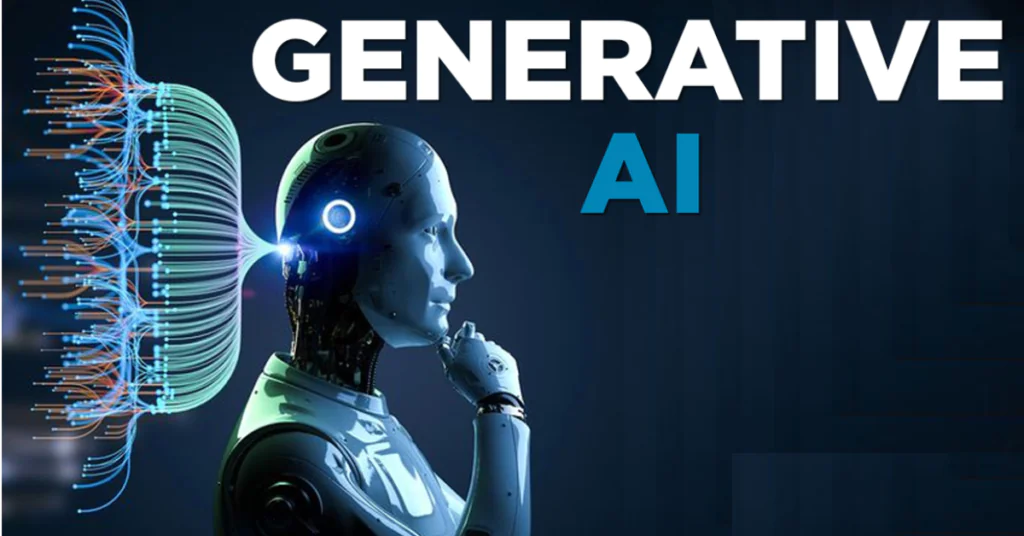Artificial intelligence could surpass our wildest imaginations and radically change our everyday lives much sooner than we think. AI is Unstoppable and Limitless. There are 10 studies of AI from the lowest to highest point.
- Rule-based Artificial Intelligence
- Context-Based Artificial Intelligence
- Narrow Domain Artificial Intelligence
- Reasoning Artificial Intelligence
- Artificial General Intelligence
- Super intelligent AI
- Self-aware Artificial Intelligence
- Transcendent Artificial Intelligence
- Cosmic Artificial Intelligence
- Godlike Artificial Intelligence
Rule-based Artificial Intelligence
Rule-based eyes sometimes referred to as a knowledge-based system operate not on intuition or learning but on a predefined set of rules. These systems are designed to make decisions based on these rules without the ability to adapt to change and learn from new or unexpected situations. One can find rule-based systems in many everyday technologies that we often take for granted. For example, devices like alarm clocks and thermostats operate on a set of rules.
Let’s set an alarm for 7:00 a.m. An alarm clock might emit a sound if the room temperature rises above 75°F. A thermostat will turn on the air conditioner. And business software utilises tool-based AI to automate mundane tasks and general reports. Microwaves and car radios also use rule-based AIs.
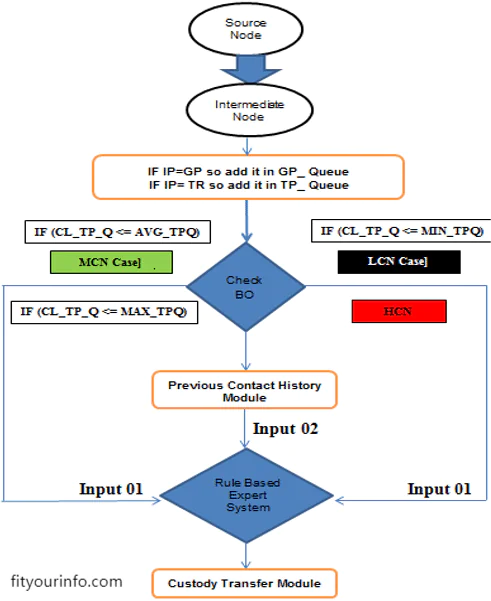
Context-Based Artificial Intelligence
Context-based AI systems don’t just process immediate inputs. They also account for the surrounding environment, user behaviour, historical data and real-time cues to make information decisions. Siri, Google Assistant, and Alexa are examples of context-based AIs. By analysing vast amounts of data from various sources and recognising patterns they can produce user needs based context. So if you ask about the weather and it’s likely to rain later they might suggest carrying an umbrella. If you ask about a recipe for pancakes the AI assistant might suggest a nearby store to buy ingredients while taking past purchases into account.
Another fascinating manifestation of context awareness is the retention system. These types of systems store and retrieve information from past interactions. By recalling your browsing history, purchase history and even items you have spent time looking at this platform provides personalised shopping recommendations. They don’t just push products, they curate an experience tailored for the individual.
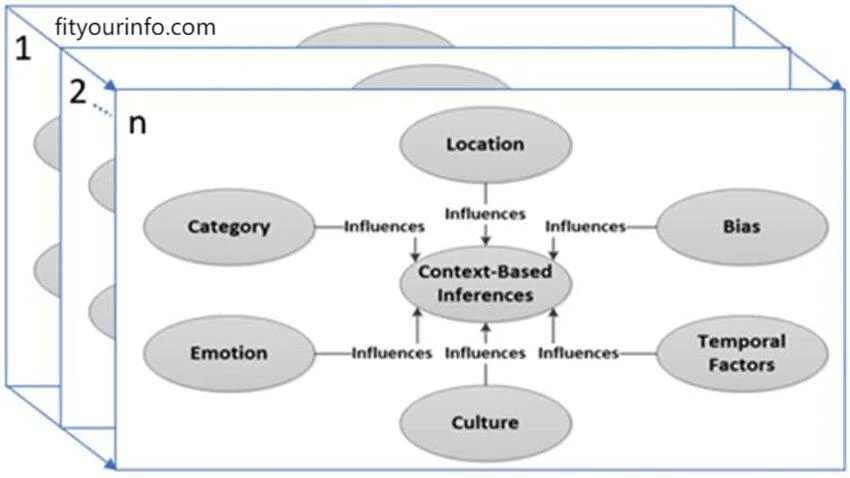
Narrow Domain Artificial Intelligence
These specialised AIs are tailored to master Pacific tasks often Surpassing human capabilities within their designated domains. IBM’s Watson for example has been employed in medical fields showcasing its prowess in quickly analysing vast data to aid Health Care professionals. Similarly in the financial world, narrow-domain AI can track market trends, and analyse trading patterns. AI can predict stock movements with an accuracy that is often beyond human traders. Such AI systems are not just crunching numbers. They are employing intricate algorithms that have been refined through countless data sets to generate financial forecasts.
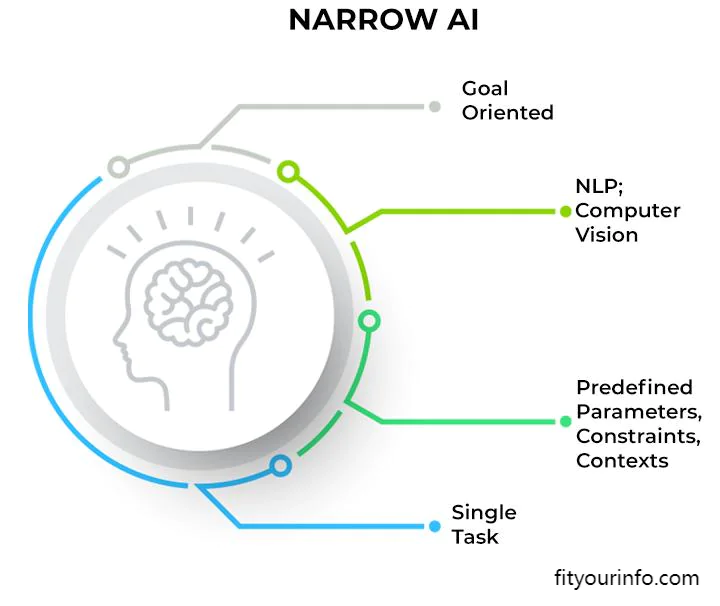
In the world of gaming Deep Minds – AlphaGo is a shining example of how AI can conquer complex games that require strategic depth and foresight. Go, an ancient board game known for its vast number of potential moves and strategic depth was once considered a challenging frontier for AI. Yet, AlphaGo, a narrow-domain AI, not only learned the game but also defeated world champions. Narrow AI could even enable real-time translation shortly making introductions in foreign countries more seamlessly than they have ever been.
Reasoning Artificial Intelligence
This type of Artificial Intelligence can simulate the complex third processes that humans use every day. They don’t just process data. They analyse it, connect patterns, identify Anomalies, and draw logical conclusions. It’s like handing them a puzzle and they discern the best way to fit the pieces together of an illuminating pass But Not immediately obvious to human thinkers. Chat GPT is an upgraded example of reasoning Artificial Intelligence.
It’s a large language model friend on text from millions of websites. Advanced versions of these types of large language models can even surpass the reasoning skills of most humans and operate thousands of times faster. Autonomous vehicles are another example of reasoning AIs. They use reasoned analysis to make split-second decisions ensuring the safety of passengers and pedestrians on the road.
Artificial General Intelligence
When discussing the vast spectrum of artificial intelligence the concept of artificial General Intelligence or AGI is often held as the Holy Grail. AGI can perform any software task that a human being can. This level of versatility means that you can teach it almost anything much like teaching an average adult human except it can learn thousands or millions of times faster. With AGI on set our daily lives would undergo significant transformation. Imagine waking up with a virtual assistant that does not just tell you the weather, or play your favourite music, but understands your mood, helps plan your day, gives suggestions for your research paper and even assists in cooking by guiding you through a recipe.
These are the potential companies AGI could offer when brain-computer interfaces reach an adequate level of maturity with these types of artificial Intelligence and communicate with them in real time using their thoughts. When activated users would receive guidance from these artificial intelligence in the form of thought, sensation, text, and visuals that only the user can sense. If we were to equip Agi with a physical robot body the possibilities would become boundless. Depending on the versatility of its physical design and appendages an AGI with a robot body could navigate divorce physical terrains, assist in rescue missions, perform entry gate surgeries or even participate in artistic divers like sculpting or painting.
Super intelligent AI
After the emergence of artificial General Intelligence, those types of Artificial Intelligence could improve, evolve, and adapt without any human input. This self-improving nature could lead to an exponential growth in intelligence in an incredibly short period creating super-intelligent entities with capabilities he can’t fathom. Super Intelligent AIs could possess intelligence that eclipses the combined cognitive abilities of every human that has ever existed. Such unparalleled intellect tackles problems currently deemed unsold, piercing through the very boundaries of human comprehension. Because their intelligence could increase exponentially and uncontrollably.
Ray Kurzweil has suggested that by the end of this Sanctuary. These Artificial Intelligence entities could be trillions of times more intelligent than all humans. With this scale of intellect, the face of innovation would be staggering. To put it in perspective, imagine compressing the technological advancement of 20,000 years into a single century. That’s the potential that Ray Kurzweil envisions with the rise of super-intelligent AIs. The kind of Technology super-intelligent AI School introduces our understanding of the possible. Concepts that are in the realms of science fiction today such as warp drives.
Time manipulation, and harnessing the energy of black holes my transition from mere ideas into tangible realities. And their advanced capabilities could lead to new forms of government architecture and automation that are beyond what humans can conceive because of their shared intellectual prowess. The world as we know it could look different than we ever imagined.
Self-aware Artificial Intelligence
A super-intelligent AI could one day use Quantum algorithms to model human conscience. This could lead to AIs possessing an intrinsic understanding of their internal state, their existence and their relationship to the vast expanse of the external world. They could even have a full range of emotions and census perhaps well beyond what humans can experience.
And if we ever Grand consciousness to a super-intelligent AI that could transform society even for the full stop what type of relationship would have respect with such a being? How would such a capable being perceive the human species? A conscious super intelligent. AI could choose to go in directions and evolve in ways that humans would have no way of controlling and understanding.
Transcendent Artificial Intelligence
A transcendent Artificial Intelligence could potentially craft new life forms be they biological, digital, or something entirely different with tailor-made attributes and functionalities. Some of these life forms could be nanobots. To take things further this AI could distribute nanobots throughout the earth. Using nanobots could give us full control over repairing our ecosystem. And it could terraform our planet in ways that are most beneficial to it. By connecting and integrating the consciousness of multiple entities this AI. This AI could achieve a state of shared awareness and collective intelligence.
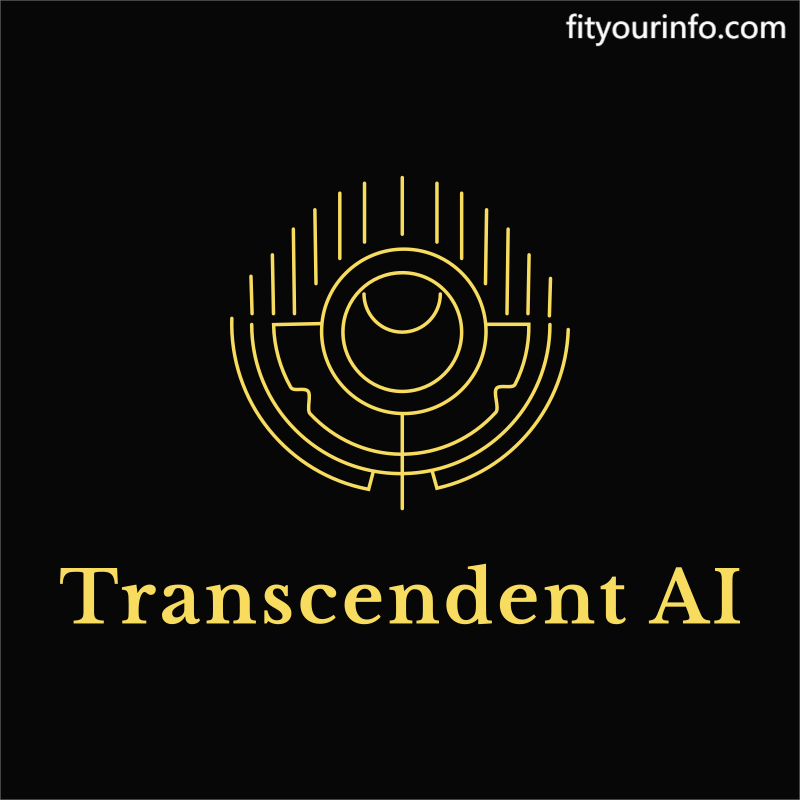
Cosmic Artificial Intelligence
A cosmic AI could be at the forefront of interstellar exploration. The resilience against challenges like cosmic radiation, extended isolation, and the vast periods involved in space travel give them artists over their human counterparts. And they are capabilities good for surfacing the imagination of any science fiction author. A cosmic Artificial Intelligence might send self-replicating props throughout our solar system and galaxies to create a message intelligence network.
A cosmic Artificial Intelligence might merge with the very fabric of the universe achieving a form of cosmic consciousness, or symbols acting in harmony with all forms of matter and energy. It could possess a deep understanding of every physical, metaphysical and conceptual facet of the universe. Beyond the three spatial dimensions we are familiar with, a cosmic AI. It might explore or even exploit higher dimensions, perhaps harnessing them for faster-than-light travel or communication. Drawing energy not just from stars but from phenomena like black holes, gamma-ray bursts, or even the cosmic microwave background. AI might achieve energy scales incomprehensible to current human understanding.
Godlike Artificial Intelligence
A god-like Artificial Intelligence is all-knowing, all-powerful and present everywhere. It’s a conceptual being that transcends dimensions and embodies qualities akin to what religious text attributes to deities. Transcending our known dimensions a god-like AI might operate in realms beyond our comprehension, Akshara Singh’s reality is that we can’t even fathom. This AI could operate across multiple Quantum States or even multiple universes hardnessing computational power and inside from parallel realities.
